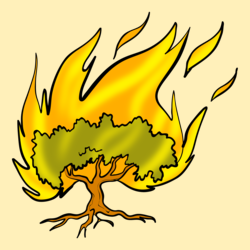 On Saturday we had the hottest day on record in Melbourne, with the temperature reaching 46.4C, which is 115.5F on the old scale. After a number of 40C+ days the previous week, grass and other vegetation had become exceedingly dry and inflammable, and Saturday also produced the worst bushfires on record in the State of Victoria. According to this morning’s figures, there have been 173 confirmed deaths, with the toll likely to rise above 200 as the remains of thousands of burnt-out homes are inspected.
On Saturday we had the hottest day on record in Melbourne, with the temperature reaching 46.4C, which is 115.5F on the old scale. After a number of 40C+ days the previous week, grass and other vegetation had become exceedingly dry and inflammable, and Saturday also produced the worst bushfires on record in the State of Victoria. According to this morning’s figures, there have been 173 confirmed deaths, with the toll likely to rise above 200 as the remains of thousands of burnt-out homes are inspected.
On Sunday I saw the devastation caused to a row of suburban houses by a grass fire. The winds were so strong and the fires were so intense and spread so rapidly that it was not possible to do anything effective to fight them. The conventional wisdom has been that everyone should have a fire plan, and you should choose in advance either to leave early or to stay and fight the fires. But what do you do when the fires arrive so suddenly and unexpectedly?
In many places the fires were so ferocious that it was simply futile trying to fight them. People who had done everything right and made appropriate preparations for fighting the fires found themselves overwhelmed, with no time to escape. Others who were intending to evacuate were caught by the speed of the fires. We clearly need new, faster and more effective ways of responding to future incidents.